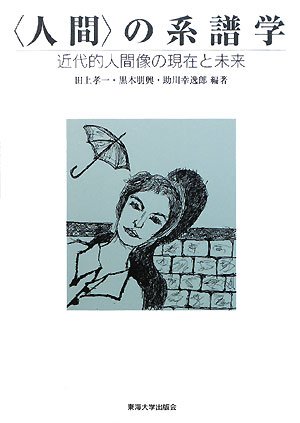28 0 0 0 OA キリスト教の悪魔と『鬼滅の刃』の鬼
- 著者
- 黒木 朋興
- 出版者
- 特定非営利活動法人 頸城野郷土資料室
- 雑誌
- 頸城野郷土資料室学術研究部研究紀要 (ISSN:24321087)
- 巻号頁・発行日
- vol.8, no.2, pp.1-32, 2023 (Released:2023-04-27)
12 0 0 0 OA 異議あり、一八世紀フランスのレトリックは転義法に「限定」されてはいない
- 著者
- ドゥエ フランソワーズ 黒木 朋興
- 出版者
- 物語研究会
- 雑誌
- 物語研究 (ISSN:13481622)
- 巻号頁・発行日
- no.8, pp.74-84, 2008-03-31
Highly influenced by Dumarsais's treatise On Tropes (1730), French rhetoric in the 18th century was "restricted" to the study of models of signification or tropes. I shall propose here four historical counter-arguments to this thesis put forward by Gerard Genette in 1970. First, in the 18th century there is no relevant break in French rhetoric since it remained unrestricted from 1598 to 1885. Second, considered a grammar by its own author and a poetics by its contemporaries, the treatise On Tropes is not in fact significantly representative of the evolution of rhetoric. Third, even in the treatises of rhetoric influenced by Dumarsais, the part assigned to tropes remained unchanged throughout the 18th century. Fourth, some other aspects of rhetoric structure reveal a considerable amount of mobility in the 18th century: action, passions, design, models of construction and styles. In brief, though stimulating in 1970, this thesis of "restricted rhetoric" has nowadays become an epistemological obstacle to the understanding of the history of rhetoric in France.
6 0 0 0 OA マラルメにおけるヴィオールの象徴について『聖女』を中心に
- 著者
- 黒木 朋興
- 出版者
- 上智大学
- 雑誌
- Les Lettres francaises (ISSN:02851547)
- 巻号頁・発行日
- vol.16, pp.15-26, 1996-07-15
1 0 0 0 OA マラルメとライシテ
- 著者
- 黒木 朋興
- 出版者
- 特定非営利活動法人 頸城野郷土資料室
- 雑誌
- 頸城野郷土資料室学術研究部研究紀要 (ISSN:24321087)
- 巻号頁・発行日
- vol.5, no.1, pp.1-24, 2020 (Released:2020-03-17)
- 参考文献数
- 19
日本語で政教分離と訳されるフランスのライシテをキーワードとして、マラルメの詩学を読解し、更に19世紀末以降に共和政を開始したフランスの民主主義における神と宗教における問題を考察する。キリスト教への信仰を捨てたマラルメは、神を代換する機能を芸術に託すことによって、神なき時代の社会と芸術のあり方を探究し、20世紀には多くの前衛芸術に絶大なる影響を与えた。また、フランスは18世期末の大革命により王政を廃止して、政治からカトリック教会の影響を切り離すことで共和政を開始し、世界の民主主義に大きな影響を与えた。この二つのテーマはともに、神中心から人間を主役にした仕組みへの移行というライシテの思想に基づいている。というわけで、前衛の理論的支柱となったマラルメの詩学と西洋近代民主義が標榜する普遍性がどの程度有効なのを探るべく、ライシテをキーワードにこの両者の分析を行った。まずはフランスのライシテの背景としてカトリックの思想を受肉とフェティシズムの観点から解説し、更にマラルメがライシテについて言及している断章を読解することによって、フランスのライシテが抱える困難な状況を分析した。それを通して、西洋近代民主主義の問題点を明らかにし、その普遍性について改めて考えてみた。
1 0 0 0 OA 異議あり、一八世紀フランスのレトリックは転義法に「限定」されてはいない
- 著者
- ドゥエ フランソワーズ 黒木 朋興
- 出版者
- 物語研究会
- 雑誌
- 物語研究 (ISSN:13481622)
- 巻号頁・発行日
- vol.8, pp.74-84, 2008-03-31 (Released:2018-03-27)
Highly influenced by Dumarsais's treatise On Tropes (1730), French rhetoric in the 18th century was "restricted" to the study of models of signification or tropes. I shall propose here four historical counter-arguments to this thesis put forward by Gerard Genette in 1970. First, in the 18th century there is no relevant break in French rhetoric since it remained unrestricted from 1598 to 1885. Second, considered a grammar by its own author and a poetics by its contemporaries, the treatise On Tropes is not in fact significantly representative of the evolution of rhetoric. Third, even in the treatises of rhetoric influenced by Dumarsais, the part assigned to tropes remained unchanged throughout the 18th century. Fourth, some other aspects of rhetoric structure reveal a considerable amount of mobility in the 18th century: action, passions, design, models of construction and styles. In brief, though stimulating in 1970, this thesis of "restricted rhetoric" has nowadays become an epistemological obstacle to the understanding of the history of rhetoric in France.
1 0 0 0 OA 秩父札所の戦没者慰霊碑
- 著者
- 黒木 朋興
- 雑誌
- 東京電機大学総合文化研究 = Bulletin of Tokyo Denki University, Arts and Sciences (ISSN:1348799X)
- 巻号頁・発行日
- no.16, pp.121-125, 2018-11-16
1 0 0 0 「人間」の系譜学 : 近代的人間像の現在と未来
- 著者
- 田上孝一 黒木朋興 助川幸逸郎編著
- 出版者
- 東海大学出版会
- 巻号頁・発行日
- 2008
- 著者
- 黒木 朋興
- 出版者
- 物語研究会
- 雑誌
- 物語研究 (ISSN:13481622)
- 巻号頁・発行日
- no.8, pp.85-93, 2008-03


